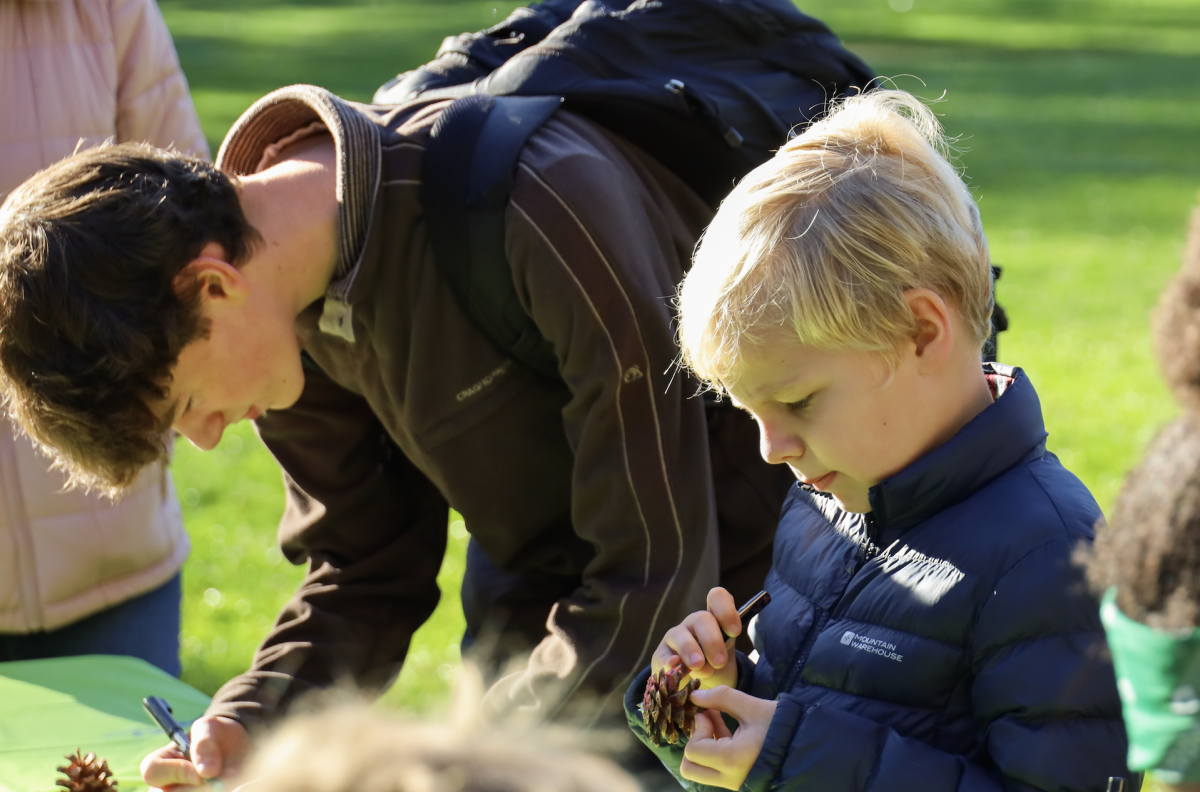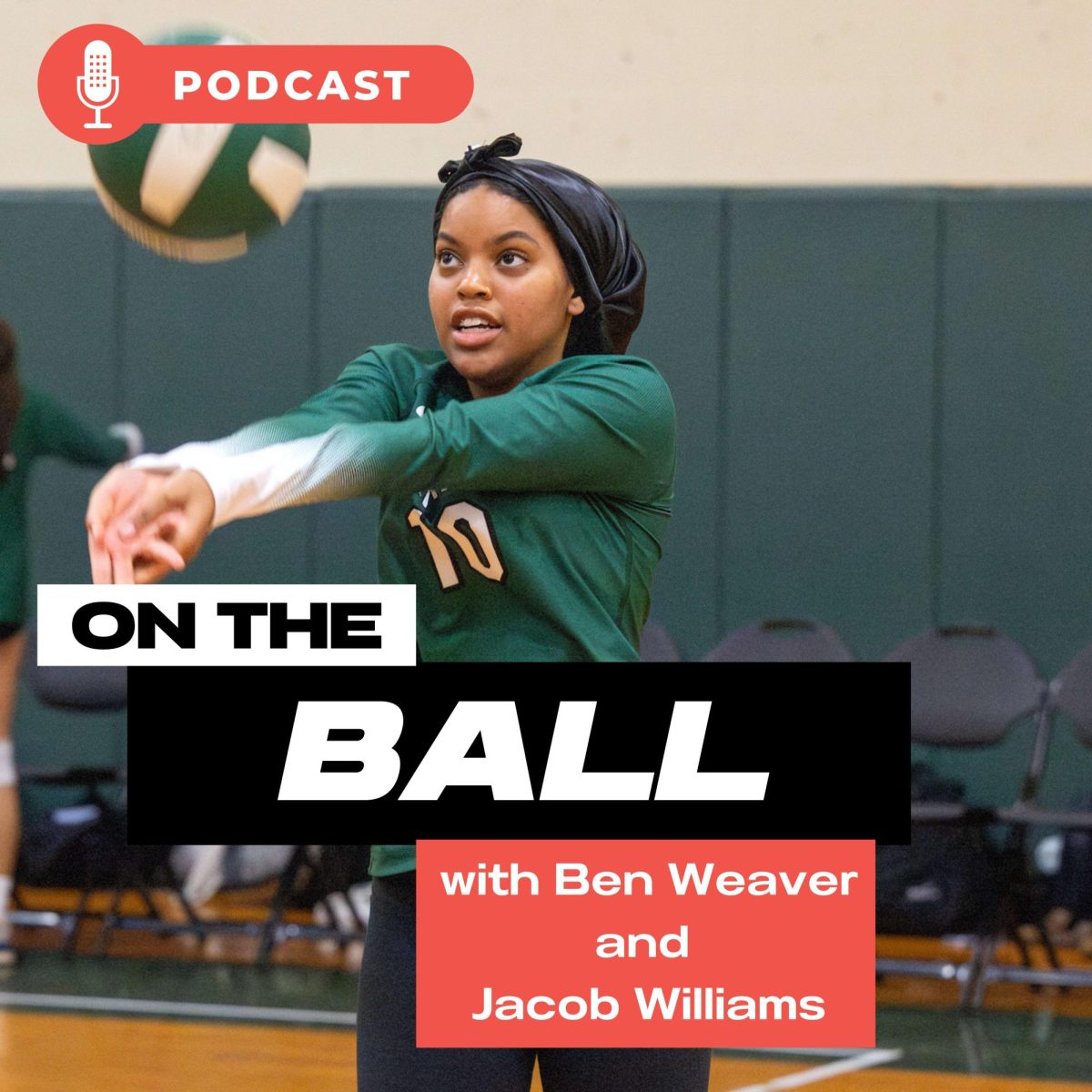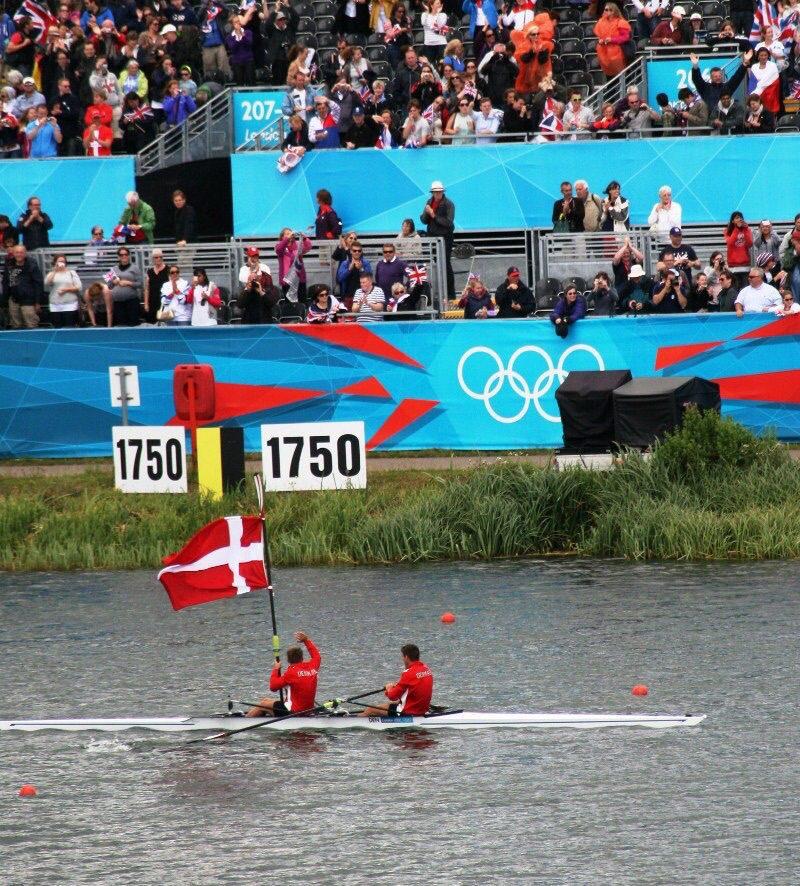At a special assembly last Friday, School Board of Trustee member Ulrik Christensen, together with the Olympic rowers Mads Rasmussen, Rasmus Quist, Juliane Elander Rasmussen, Anne Lolk and Steffen Bonde, shared their thoughts on how to prepare for success and learn from setbacks
In the 2012 London Olympics, Rasmussen and Quist won gold in the men’s Lightweight Double Sculls. They placed fourth in the 2004 Summer Olympics in Athens, and third in the 2008 Summer Olympics in Beijing. Elander has competed in four Olympics. In London, she paired with Anne Lolk and placed fourth, falling just short of a medal.
Unfortunately, this year, no Danish double sculls made it to the A finals to earn a medal. Gator reporter Caroline Ellervik ’18 sat down with Mads and Juliane to get more of their thoughts.
Explain your reaction after having passed the finish line in Rio, knowing you didn’t make it to compete for medals in the A finals?
Mads: At first I just didn’t understand what happened, something was wrong. It was not supposed to be like this. It was a huge disappointment. The last two minutes of the race, we didn’t have the right position to qualify, so in a strange way you are kind of already prepared for the huge disappointment that will hit hit you at the finish line even. It takes days and weeks to get over the disappointment. Likewise, if you lose your dog you have to get over it before you buy a new one. unfortunately there is no quick way to get over it.
Juliane: It was a bit unreal. For the last two years we had been training every day and been dreaming of being in the finals for Rio—and fighting for the medals. At the moment we crossed the finish line, we knew we didn’t qualify. We felt we kind of wanted to do it over and wished for another chance. Of course, we knew we couldn’t do that. At that very moment, you don’t even think of the next Olympics. We allow ourselves to be disappointed at that very moment.
How does Rio compare to London in 2012, where you won Gold with Rasmus in the lightweight sculls?
M: Rowing in England is a huge sport, and the Olympic stadium in London is the biggest crowd we have ever raced in front of. Rowing on Eton Dorney, the lake, is for most rowers a very special experience. On top of that, when we won, nothing could compare to that feeling.
J: Rio was very spectacular in another way. It was a very beautiful setting and right in the middle of downtown Rio. The start of the race was right at the foot of the Corcovado Mountain [which at the top, features the famous Christ the Redeemer statue]. The lake in Rio was very beautiful and spectacular, but really difficult to row on. In London, there was the “Eton Roar” and the the crowd was incredibly huge. Unlike any other place, you could hear the crowd from 1 km [1,000 yards] away. At the finish line, you literally row into the Eton Roar. London will stay the biggest experience in my rowing career.
Juliane, how did Rio compare to London?
J: We went to Rio to fight for medals, and we were in better shape than ever. But there were many complications in Rio—long travel, time difference and bad weather that postponed the race twice. Rio was a great experience however London had other complications. In London, Anne and I were new partners and we went to do our best, and not necessary for the medals only. Competing was easier in London because it was largely the same climate, and we had the same boat as at home.
What’s your process for weighing in?
M: First we are weighed about two hours before starting time, and we prepare to do that months before. The men need an average weight of 154 pounds in the boat, and the women need an average of 126 pounds. We have a special diet that brings us down in weight; about 3kgs [about 6.6 pounds] from the ideal. The last three days before the race we lose about 1kg [2.2 pounds] and consume about half the amount of calories as normal, and the last two kg we lose by dehydrating in either a warm bath, sauna, or electrical sweat bags also called sauna bags. If we don’t have either of those three things, we put on a ton of clothes and row until we are at the weight we want to achieve.
Did the combination of cancellations and weighing in impact your performance in this year’s Olympics?
M: The Danish way of weighing in might have affected us, but we have no way to know. It was most definitely not good for us. We don’t know how it affected everyone else. It was not the optimal situation, but it was not good for others either.
How is competing in the Olympics different from other races you participate in?
J: The Olympics is only every 4th year, and the biggest event within our sport. It’s a one in a million shot to qualify for the Olympics. This makes it very special, and there is a lot more media attention, which heightens the level of pressure. Pressure sounds very negative, but is it one of the things that makes the Olympics awesome to compete in. We know we only have one chance, or we have to wait another four years for a chance to win a medal. There is a lot more security and service at the olympics and you can definitely feel how special it is. There is also a special feel to every city the Olympics are held in. It is very special to be a part of a big national team. Normally, it is rowers against rowers, but at the Olympics it is country against country.
Do you prepare differently for the Olympics than other events?
M: We have more time for preparation and do more training. It is both good and bad to have more time. Overall, it is pretty nice though.
J: Much more attention from the national team and Team Denmark [an organization that funds all national sport teams in Denmark] because the olympic medals are the most important. In the year leading up up to the Olympics, we have more training camps and get more support through sponsors in order to be one hundred percent optimized and in shape. We don’t study or work the whole last year up to the Olympics.
Did you have a specific strategy for Rio?
M: We have a general plan for all races. It is a checklist over the different marks we need to achieve during the race. After a big sprint at the start start, we check all the technical stuff and give eachother a “check” after passing 300 meters. Then we find a general race pace. Then we have a push at 750m and at 1250m. At 1500m, we increase cadency by two strokes and the last 250m we sprint and give all we have left. This plan is sometimes tweaked. For example, if we are close to the opponents we add some extra pushes and at Rio we started the final sprint earlier.
How do you prepare mentally for a race?
J: The day before the race, I try to think as little as possible about the race. I try to stay relaxed because thinking about the race makes me too excited and alert. On race day we have a special feel in the body but try to relax as much as possible. Two hours before, I start to visualize the race with my eyes closed. I go through the whole race. I do not prepare anything for losing.
How do you tackle losing? Are there ever any feelings of having wasted your time?
M: It never feels like a waste of time. Automatically, we start analyzing what we need to do to be fully optimized. The disappointment comes together with new motivation for the next race.
J: I think we always are good at thinking of how to optimize, but we are still very disappointed and it takes time to get over a loss. There is sometimes a lot of self-blame during the process of coping with a loss. And as Mads said, I try to use the disappointment as new motivation.
How do you motivate yourself to put forth your best effort every day?
M: That depends how long it is until the next race. If there is a month until the Olympics, I only think about the Olympics and that is enough motivation in itself to drive my daily training and motivation. However, when the Olympics are over and we have to stay in shape at home, we train more like amature athletes—in the sense that we make smaller goals each month to achieve. These could be mean participating in smaller races in and around Denmark. They are not merely rowing races but rather running or biking races, or anything that keeps us in shape and is fun. New goals are the daily motivation.























































